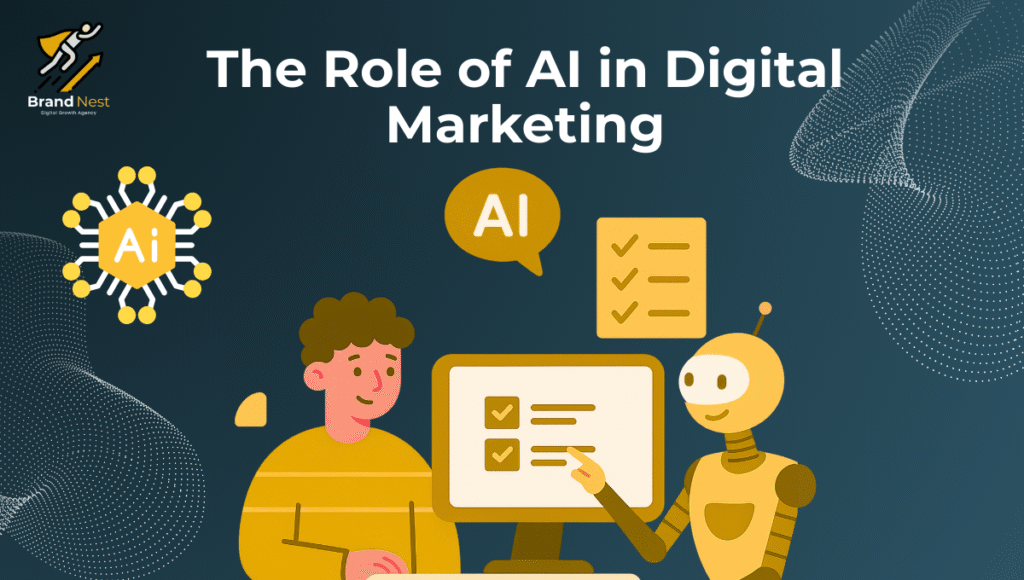
In today’s fast-paced digital world, artificial intelligence (AI) has become a game-changer for the marketing industry. Once considered a futuristic concept, AI is now a practical tool that helps businesses automate processes, analyze massive amounts of data, personalize user experiences, and improve overall marketing effectiveness. From predictive analytics to chatbots and recommendation engines, AI is transforming how brands connect with their audience.
This article explores the various ways AI is revolutionizing digital marketing, its benefits, real-world applications, and the challenges that come with it.
1. Understanding AI in the Context of Digital Marketing
Artificial intelligence refers to the ability of machines to simulate human intelligence — learning from data, recognizing patterns, making decisions, and improving over time without direct human programming. In digital marketing, AI enables marketers to analyze large data sets, predict customer behavior, and deliver highly targeted campaigns with minimal effort.
Unlike traditional marketing tools, AI can process and act on information in real-time, allowing brands to respond quickly to market changes and customer needs.
2. Key Roles of AI in Digital Marketing
a. Personalization at Scale
One of AI’s most valuable roles is enabling deep personalization. In the past, personalization was limited to using a customer’s name in an email. Now, AI algorithms can analyze browsing history, purchase behavior, location, and even social media activity to deliver tailor-made content, product recommendations, and offers.
For example:
Netflix uses AI to recommend shows and movies based on viewing patterns.
Amazon suggests products based on previous purchases and similar customer behavior.
The result is a more relevant and engaging user experience, which increases customer satisfaction and conversion rates.
b. Predictive Analytics and Customer Insights
AI-powered predictive analytics helps marketers forecast future trends and customer actions based on historical data. This allows brands to:
Identify which leads are most likely to convert.
Determine the best time to launch a campaign.
Allocate budgets more efficiently.
For instance, an e-commerce platform can use AI to predict which products will be in demand during a particular season, enabling better inventory management and targeted promotions.
c. Automating Customer Support
AI-driven chatbots and virtual assistants are now common on websites and social media platforms. They can handle routine queries, provide instant answers, and operate 24/7 — all without human intervention.
Benefits include:
Reduced response times.
Lower operational costs.
Improved customer satisfaction through instant support.
Advanced chatbots like ChatGPT and Google’s Bard can even provide complex responses and engage in natural, human-like conversations.
d. Content Creation and Optimization
AI tools can generate marketing copy, blog articles, product descriptions, and social media posts. They can also optimize content for search engines by analyzing keyword trends, competition, and user intent.
For example:
Jasper AI and Copy.ai assist marketers in drafting high-quality, SEO-friendly content in minutes.
AI can also analyze how content is performing and suggest improvements.
e. Programmatic Advertising
Programmatic advertising uses AI to buy and place ads automatically in the most relevant places and at the right times. It relies on real-time bidding and audience targeting, which minimizes wasted ad spend and improves ROI.
With AI, programmatic systems:
Identify the best audience segments.
Determine the ideal timing for ad display.
Adjust bids automatically for maximum performance.
f. Email Marketing Optimization
AI can segment audiences and determine the most effective subject lines, content, and sending times for email campaigns. It can even run A/B tests automatically to ensure that the most engaging version is sent to each subscriber group.
g. Social Media Insights and Automation
AI tools monitor social media platforms for trends, brand mentions, and customer sentiment. This helps businesses respond quickly to customer concerns and identify viral opportunities.
It can also schedule posts, recommend optimal posting times, and analyze engagement metrics to refine future strategies.
h. Visual Recognition and Targeting
With AI-powered image recognition, platforms like Facebook and Instagram can identify objects, people, or even emotions in images and videos. Marketers can use this technology to target ads based on visual content preferences.
3. Benefits of AI in Digital Marketing
Data-Driven Decisions: AI processes vast amounts of data that would be impossible for humans to handle manually.
Improved ROI: More accurate targeting means better use of marketing budgets.
Time Efficiency: Automation reduces repetitive tasks, allowing marketers to focus on strategy.
Enhanced Customer Experience: Personalization and faster response times improve satisfaction and loyalty.
Real-Time Optimization: Campaigns can be adjusted instantly based on live performance data.
4. Real-World Examples of AI in Digital Marketing
Coca-Cola: Uses AI to create targeted ad content and analyze customer preferences.
Sephora: Employs AI-powered chatbots to help customers choose the right beauty products.
Spotify: Uses AI to personalize playlists based on listening behavior.
H&M: Applies AI to predict fashion trends and manage inventory.
5. Challenges of AI in Digital Marketing
Despite its many benefits, AI implementation is not without hurdles:
Data Privacy Concerns: Collecting and processing user data must comply with regulations like GDPR.
High Initial Costs: Developing or integrating AI tools can be expensive.
Skill Gaps: Marketers need training to work effectively with AI systems.
Over-Reliance on Automation: Too much automation can reduce the human touch in brand communication.
6. The Future of AI in Digital Marketing
Looking ahead, AI will continue to evolve and integrate with other emerging technologies like augmented reality (AR), virtual reality (VR), and the Internet of Things (IoT).
We can expect:
Hyper-Personalization: Campaigns that adapt in real-time to individual user behavior.
Voice Search Optimization: With smart assistants like Alexa and Siri, voice-based AI marketing will grow.
Emotion AI: Systems capable of detecting emotional states and adjusting content accordingly.
Ethical AI: Greater focus on transparency, fairness, and unbiased algorithms.
Conclusion
Artificial intelligence is no longer optional for competitive digital marketing — it’s essential. By leveraging AI, businesses can deliver smarter, faster, and more personalized experiences to their customers. From automation to deep data analysis, AI empowers marketers to make informed decisions, save time, and maximize returns.
However, the most successful strategies will strike a balance between AI automation and the human creativity, empathy, and storytelling that technology alone cannot replace.


